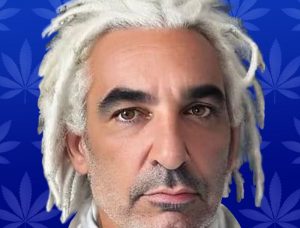The Tunisian government is facing growing international criticism as a court imposes severe sentences on prominent opposition members, reflecting a troubling trend towards repression since President Kais Saied's consolidation of power in 2021.
Tunisia Crackdown: Court Sentences Opposition Leaders to Decades in Prison

Tunisia Crackdown: Court Sentences Opposition Leaders to Decades in Prison
In a significant escalation of authoritarianism, a Tunisian court has sentenced nearly 40 political opposition figures, including high-profile activists, to long prison terms for alleged conspiracy against state security.
In a dramatic demonstration of the government's tightening grip on political dissent, Tunisia has sentenced about 40 individuals to lengthy prison terms, some facing up to 66 years behind bars. This includes leading opposition figures, activists, and journalists who were convicted of conspiring against state security, according to reports from the country’s official news agency, TAP. Advocacy groups and legal representatives have dismissed the charges as unfounded, igniting concerns over the political landscape in Tunisia, once hailed as a beacon of democracy following the Arab Spring uprisings in 2010.
President Kais Saied's ascent to power in 2021 marked a turning point for Tunisia, as the nation started to regress from its democratic foundations. Initially, the years after the revolution saw the establishment of electoral processes and a vibrant civil society. However, persistent economic hardships fueled discontent among citizens towards democratic institutions and political Islamists, facilitating Saied's rise as a champion of reform.
Now, under the shadow of Saied’s administration, Tunisia's political fabric appears increasingly frayed. Reports indicate that media freedom has been curtailed, with many journalists and political dissidents expressing fears of retaliation for opposing the government. Saied's consolidation of power has included the dismantling of independent state institutions, particularly those overseeing elections, further solidifying his authoritarian rule.
As the international community reacts with alarm, Tunisia’s path remains shrouded in uncertainty, with many questioning the longevity of Saied’s rule and the future of democracy in a country that once inspired hopes for transformative change.
President Kais Saied's ascent to power in 2021 marked a turning point for Tunisia, as the nation started to regress from its democratic foundations. Initially, the years after the revolution saw the establishment of electoral processes and a vibrant civil society. However, persistent economic hardships fueled discontent among citizens towards democratic institutions and political Islamists, facilitating Saied's rise as a champion of reform.
Now, under the shadow of Saied’s administration, Tunisia's political fabric appears increasingly frayed. Reports indicate that media freedom has been curtailed, with many journalists and political dissidents expressing fears of retaliation for opposing the government. Saied's consolidation of power has included the dismantling of independent state institutions, particularly those overseeing elections, further solidifying his authoritarian rule.
As the international community reacts with alarm, Tunisia’s path remains shrouded in uncertainty, with many questioning the longevity of Saied’s rule and the future of democracy in a country that once inspired hopes for transformative change.





















